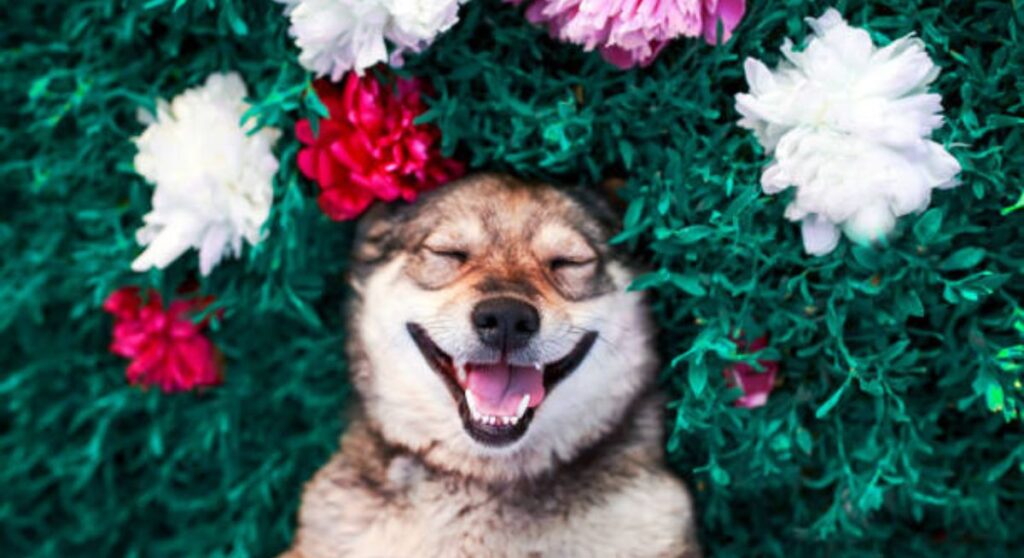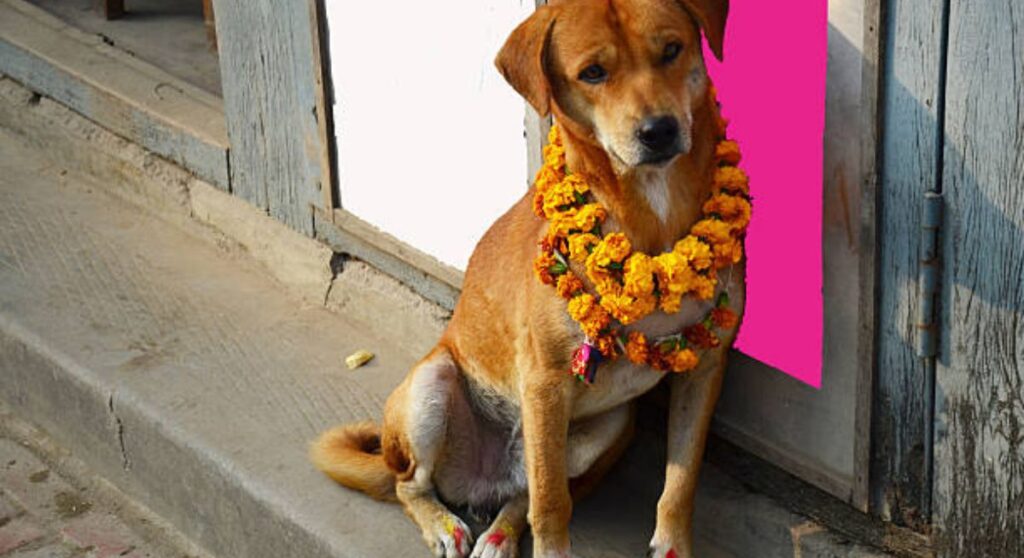Introduction:-
11 Essential Diwali Safety Tips for Pets: A Guide for Responsible Owners
Diwali is a time of celebration, but for our furry friends, the festive sounds, lights, and changes in routine can be overwhelming and even dangerous. Protecting your pets during Diwali requires careful planning and proactive steps to ensure their safety and comfort. Follow these essential tips to enjoy a pet-friendly Diwali without the stress.
11 Essential Diwali Safety Tips for Pets

1. Create a Calm Space
Diwali fireworks and celebrations can be loud, causing anxiety in pets. Designate a quiet, cozy room in your home where your pet can retreat during the festivities. Use familiar bedding, toys, and calming scents to create a sense of safety.
2. Close Doors and Windows
To muffle the sounds of fireworks, keep doors and windows closed. Use heavy curtains to reduce noise levels and block out sudden flashes of light that may startle your pet.
3. Consider Pet Ear Protection
If your pet is highly sensitive to noise, consider using pet-safe ear covers or noise-canceling ear muffs. Many pet stores offer ear protection specifically designed for animals to help reduce their anxiety.
4. Provide Distraction with Toys and Treats
Engage your pet’s attention with their favorite toys or treats. Puzzle toys or long-lasting chews can serve as great distractions, keeping them occupied during high-noise moments.
5. Avoid Firecrackers Around Pets
Avoid setting off firecrackers in close proximity to pets. The loud noises and unfamiliar smells can cause stress, and the smoke is also harmful to their respiratory systems. Be mindful of where you celebrate to keep your pet comfortable.
6. Monitor Your Pet’s Behavior
Keep a close watch on your pet’s behavior during Diwali. Look for signs of stress, such as excessive panting, pacing, or hiding. If they seem overly anxious, consider consulting your veterinarian for calming aids.
7. Choose Pet-Safe Decorations
Many Diwali decorations, such as diyas, candles, and electric lights, can be hazardous if ingested or knocked over. Use pet-friendly decorations, keep lit candles out of reach, and ensure any wires are secured and hidden to avoid accidental chewing.
8. Use Pet-Safe Rangoli and Colors
If you create rangoli designs, ensure the colors are non-toxic and safe for pets. Many store-bought colors contain chemicals that can be harmful if ingested or if they come into contact with your pet’s skin.
9. Keep Your Pet’s ID Updated
Ensure your pet is wearing a collar with an updated ID tag, or consider microchipping if not already done. With doors opening frequently for guests, there’s a higher risk of pets slipping outside unnoticed.
10. Avoid Feeding Festive Sweets to Pets
Diwali sweets are often made with ingredients like sugar, chocolate, and nuts, which can be harmful to pets. Keep all sweets out of reach, and stick to pet-friendly treats if you’d like to include your furry friend in the celebration.
11. Consult Your Vet About Calming Aids
If your pet struggles with severe anxiety, talk to your vet about calming aids, such as pheromone diffusers, anxiety wraps, or natural supplements. Your vet can recommend safe, pet-specific solutions for reducing Diwali stress.
Tips for distracting your pet when there are fireworks or loud noises
Here are some effective tips for keeping your pet calm and distracted during fireworks or other loud noises:

1. Create a Safe Space
- Designate a quiet room where your pet can feel safe, preferably with minimal windows or soundproofing.
- Make the space cozy with blankets, toys, and familiar items that bring comfort.
2. Use White Noise or Calming Music
- White noise machines, soft music, or specific “pet relaxation” playlists can help mask loud sounds.
- Classical music or other soothing sounds are often effective in helping pets relax.
3. Engage Them with Toys and Puzzles
- Interactive toys or puzzle feeders are great distractions. The mental engagement can keep their focus off the noise.
- Try giving them a long-lasting chew toy or a treat-stuffed puzzle that they can work on for a while.
4. Try Calming Products
- Calming sprays, treats, and diffusers containing pheromones can help ease anxiety.
- For dogs, try an anxiety wrap or “thundershirt” that applies gentle pressure, which can have a calming effect.
5. Practice Beforehand (If Possible)
- If you know a loud event is coming, try desensitizing your pet by playing firework sounds at a low volume and rewarding them for calm behavior.
- Gradually increase the volume over time, keeping sessions short and positive.
6. Provide Extra Exercise Beforehand
- Take your pet for a long walk or a play session earlier in the day. A tired pet is more likely to be calm and less reactive.
7. Stay Calm Yourself
- Pets often mirror our emotions, so staying calm and positive can help reassure them.
- Avoid reinforcing fearful behavior; instead, reward calm behavior with treats and affection.
Using a combination of these strategies can help your pet feel more secure and manage their anxiety during noisy events.
Foods that are especially unsafe for pets during Diwali
During Diwali, festive treats and rich foods are everywhere, but many of these can be harmful to pets. Here are some common Diwali foods to keep away from pets:

1. Sweets with Chocolate
- Chocolate contains theobromine, which is toxic to both cats and dogs and can cause symptoms ranging from vomiting to seizures. Dark and baking chocolate have especially high levels of theobromine.
2. Sweets with Artificial Sweeteners (Xylitol)
- Xylitol, a common sugar substitute, is highly toxic to dogs and can lead to insulin release, causing hypoglycemia (low blood sugar), seizures, and even liver failure.
3. Deep-Fried Foods
- Fried items like samosas and pakoras are high in fat, which can upset your pet’s digestive system, potentially leading to pancreatitis, a serious inflammatory condition.
4. Dairy-Based Sweets
- Many Diwali sweets, like rasgulla, barfi, and kheer, contain milk, which can be difficult for pets to digest, especially for those who are lactose intolerant. This can result in gastrointestinal upset, including diarrhea and vomiting.
5. Onions and Garlic in Savory Foods
- Onion and garlic, commonly used in Indian cuisine, are toxic to dogs and cats, causing damage to red blood cells, which can lead to anemia if consumed in large enough quantities.
6. Spicy Foods
- Many Diwali snacks and foods contain spices that can be harsh on a pet’s digestive tract. Spicy foods can cause stomach irritation, diarrhea, and even vomiting.
7. Nuts (especially Macadamia)
- Macadamia nuts are highly toxic to dogs, causing weakness, vomiting, and hyperthermia. Other nuts can also pose choking hazards or be difficult for pets to digest.
8. Alcoholic Beverages
- Alcohol can be very dangerous for pets, causing symptoms ranging from vomiting to respiratory distress and seizures.
Keeping these foods out of your pet’s reach and having pet-friendly treats on hand will ensure that your pets stay safe and healthy during Diwali.
Final Thoughts
By following these tips, pet owners can make Diwali a safer and more enjoyable experience for their furry companions. A little planning goes a long way in ensuring your pet’s comfort, letting you enjoy the festivities without worry.
Stay mindful, stay safe, and have a wonderful, pet-friendly Diwali!
This guide covers practical steps to protect your pets during Diwali and ensures a memorable celebration for both you and your furry friends.
References
- American Society for the Prevention of Cruelty to Animals (ASPCA) – Resources on pet safety during holidays and handling pet anxiety.
- ASPCA – Pet Care
- PetMD – Provides in-depth information on how to handle pet anxiety and protect pets from loud noises.
- American Kennel Club (AKC) – Offers tips on noise aversion and calming techniques for pets during events with loud noises, such as fireworks.
- The Humane Society – Offers holiday-specific safety advice for pets, including tips for festive seasons and advice on keeping pets safe.
- Veterinary Partner – Provides insights from veterinarians on using calming aids and addressing behavioral issues in pets.

